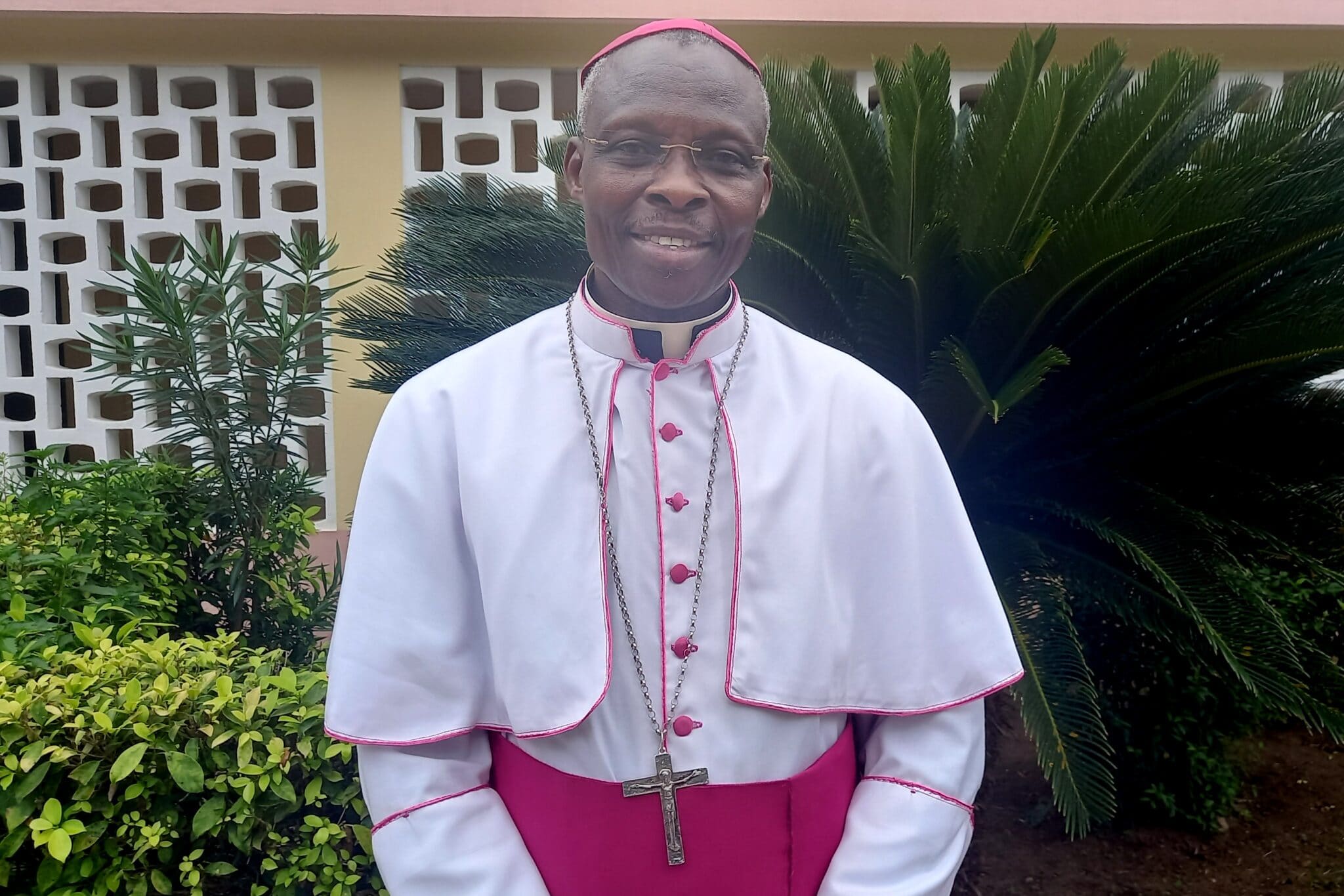Mgr François Gnonhossou (Sma), Bishop of Dassa-Zoumé and in charge of the laity within the Episcopal Conference of Benin (Ceb)/June 15, 2022/Juste Hlannon/LCA
Interview
From June 22 to 26, 2022, the Xe world meeting of families. If Rome is the main seat of the event, the other dioceses are also invited by Pope Francis to hold, on this occasion, reflections around the family. Mgr François Gnonhossou (Sma), Bishop of Dassa-Zoumé (Centre-Bénin) and in charge of the laity within the Episcopal Conference of Benin (Ceb) speaks ahead of this meeting.
What is your reception of the initiative of this Xe world meeting of families?
Archbishop François Gnonhossou: The family, treasure of humanity and crucible of life, remains a major socio-anthropological, spiritual, moral, affective, psychological, developmental and ecclesial issue which deserves the attention of all and particularly of the pastors of the Church that we are. Returning to it often to take stock of the related challenges and to identify new perspectives for its health and vitality is a necessity.
We understand then why, after the last two synods on this fundamental and founding existential reality, Pope Francis, through the dicastery for the laity, the family and life, is still organizing a world meeting to look into it. I rejoice in it and hope that it may bear fruit for the restoration of our families, societies and particular Churches.
What resonance does the Episcopal Commission for the Laity, of which you are the president, intend to give to this event in Benin?
Archbishop François Gnonhossou: In Benin, in fact, we did not wait for a world meeting to take the family very seriously by making it the pupil of our pastoral ministry. Already in the year 2000, the Episcopal Conference of Benin published a pastoral letter entitled ” Don’t let the African family be trampled on in their own land », a response to the post-synodal exhortation Ecclesia in Africa of Saint Pope John Paul II who invited “save the african family” (EIA noh84). We can also mention, in the same dynamic, the recent publication of the Charter for the pastoral care of the family in Benin, all things which attest that families are the subject of very particular attention in the sense, not only privileged accompaniment in relation to their wounds and fragilities, but also and above all, specialized training and increased awareness of their members so that they are always and everywhere missionaries of the Gospel.
This Xe world meeting will certainly allow us to take stock of our mission in the ten dioceses and at the level of our Episcopal Conference for leaps forward. We have, in fact, the certainty that the more couples and families are formed and accompanied, the more they will become important agents of evangelization in our countries.
As a prelude to this Xe world meeting of families, I invite Beninese families to become what they are, in fidelity to the Gospel of Christ and to sound cultural values. The pastoral journey of recent years has allowed me to see the determination of the families for the cause. I am therefore certain that the families will be present and will continue more than ever to ensure the future of man, of the Church and of society in Benin and on our African continent.
What are the main challenges that the Catholic family in Benin must take up today, in your opinion?
Archbishop François Gnonhossou: When we talk about family, it is in fact all the challenges it encounters that it has a duty to meet. However, the main challenges crystallize around love, conjugal communion and the culture of life. We are already there with the great perspectives outlined by the Episcopal Conference of Benin.
But these challenges become more worrying with regard to the introduction of sexual and reproductive rights in Benin and especially, since the legalization of abortion in our country. The Episcopal Conference of Benin then felt the even more urgent need to intensify affective education in schools and parishes, to provide more support to vulnerable women and to provide the dioceses with structures for the protection of life. But above all that, she emphasizes the challenge of education in the faith and in human values by families, true domestic churches.
The many spiritual and moral transhumances noted in recent years in our country make it an inescapable obligation to forge authentic Christians, balanced social actors, development agents convinced and patriotically committed to the well-being of the family and our nation. .
Collected by Juste Hlannon (in Dassa-Zoumé)
“This world meeting of families will allow us to take stock of our mission”

